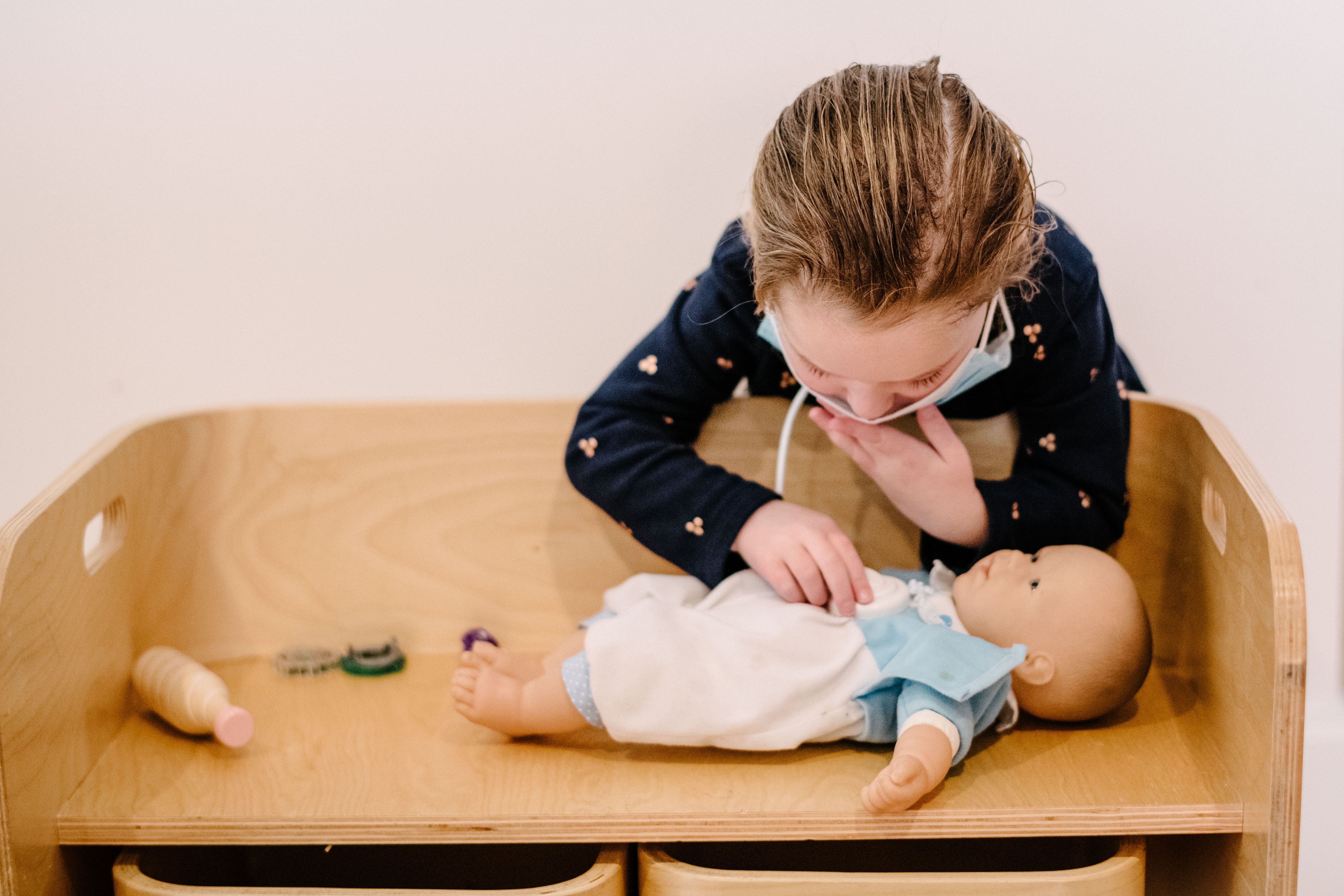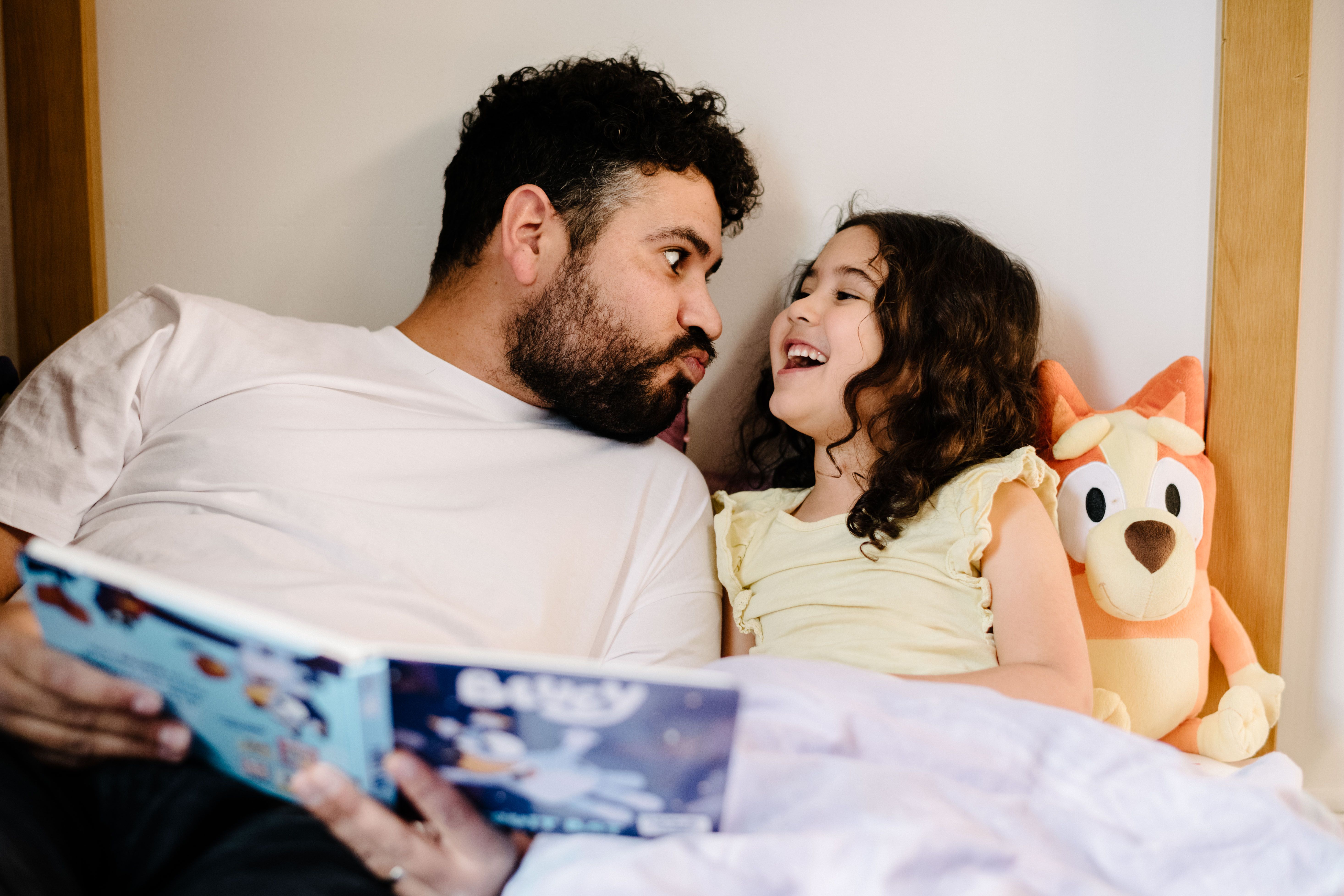Encouraging Good Behavior In Kids
Key points:
- Good behavior can often fly under the radar, whereas misbehavior is disruptive and draws a response from parents.
- Kids want your attention. If you give it to them when they act out, they’ll learn to do that more. But if you give it to them when they behave well, they’ll do more of that.
- The best ways to respond to good behavior are specific praise, tangible rewards, physical affection and quality time.
- You may need to go out of your way to catch your kids in the act of being good – but they’ll eventually give you a chance to encourage their positive behaviour.
When your kid misbehaves, it’s normal to jump straight into ‘discipline mode’. You want to stop the behavior ASAP and consequences will teach them that it’s not on, right? But what happens when you get stuck in the endless cycle of dishing out consequences for misbehavior? That’s just exhausting, frustrating and stressful.
Parents often fall into the trap of focusing most of their attention on misbehavior. Your mission (should you choose to accept it) is to try and flip the focus. Put more energy into responding to your kids’ good behavior. When you have good strategies in place for doing this, it will be much easier to manage and discourage misbehavior.
A lot of it is a mindset thing. Reframe your thinking so that family life revolves around positive behavior and become a glass half full kind of family.
What is positive behavior?
Positive behavior can be obvious things like using good manners or helping with household chores. But it can also be things that go unnoticed. For example, when your child is playing quietly in their room or when they eat their dinner without a fuss.
Examples of positive behavior in kids
These are a few of the behaviors that parents typically want to encourage in children:
- Following instructions straight away
- Using manners
- Playing nicely with other kids, sharing and taking turns
- Speaking kindly to others
- Resolving conflicts effectively (without resorting to fights, name-calling or tantrums)
- Successfully using the toilet when potty training
- Responsible screen time behaviors such as following the rules and packing up when asked
- Cleaning up toys or tidying their bedroom
- Helping out with household chores
- Playing quietly on their own
- Going to sleep on their own or staying in own bed through the night
- Eating dinner nicely or staying seated at the table
- Staying calm when frustrated
- Playing gently with others or keeping hands and feet to self.
Of course, this list doesn’t cover everything. It may help to create a unique ‘wishlist’ of behaviors you want to encourage in your children. This can remind you what behaviors to specifically look out for. If you’re separated from your child’s other parent, share the list with them. Get on the same page about what specific behaviors to reward so there's consistency between households.
The power of your attention
Before we explore ways to notice and respond to positive behaviors, let’s understand a key driver of misbehavior in children: the desire for your attention. Don’t underestimate how powerful this is.
When kids act out, parents often respond with emotion. Understandably too. No one can get under your skin quite like your own children. They know how to press your buttons and usually the result is your full, focused (livid) attention. You probably make direct eye contact when telling them off, touch them and say their name a lot. This response makes them feel like they are the center of your world, so they’ll want to go for this direct access to your attention again and again.
You’d imagine that your attention when telling your kids off isn’t as rewarding as your attention when telling them they’re being good, but that’s not quite true. A lot of kids feel very important when your full attention is on them and they get this as much when you’re yelling at them as when you’re just hanging out having a good time. You are probably going to be more emotional when your child is misbehaving and this further increases the power of your attention.
So how do you put a stop to this vicious cycle? By not rewarding misbehavior with your attention. Save it for encouraging your kids’ positive behavior – that’s when they deserve it.
Keeping discipline calm, boring and quick is the best way to discourage kids from acting out. But this should be paired with the opposite response when they behave well: rewards that are attention-rich, exciting and unpredictable.

How to reward good behavior
If you respond to misbehavior with calm, quiet, boring consequences like time-out, your child will know what to expect when they act out and won’t be that enchanted by the prospect. By contrast, rewards for positive behavior should be varied and exciting. They’ll lose their value if you offer the same thing all the time, so be sure to mix it up and respond differently each time.
Here are some of our top ideas for how to reward positive behavior.
Give verbal praise
Giving specific verbal praise helps your children understand the exact sort of behavior you want to see more of. This may feel strange at first, but the more you do it the more easily it will come.
Explicitly describe the behavior itself, not the child. For example you might say, “You did a great job turning off the PlayStation straight away when I asked you to!” rather than, “Good girl”.
Keep your praise specific, emotional and excited. Make eye contact and consider offering a kiss or cuddle to further reinforce it.
Provide tangible rewards (within reason)
Tangible rewards are really effective at supporting positive behavior. You might reward positive behavior by giving your kid a physical treat such as a toy, rewarding the whole family with a trip to get ice cream, or by putting a sticker on a good behavior chart.
No, this isn’t bribery. “If you do X you’ll get X” isn’t the best way to use tangible rewards. Instead, offer rewards as an occasional surprise to keep up the unpredictable and exciting nature of positive behavior. If you offer rewards too often children will come to expect them, so don’t always resort to this one and use it rarely.
Provide physical affection
Whether it’s hugs, kisses, high-fives or secret handshakes, physical affection is a great way to affirm positive behavior. It’s also a good one to pair with specific praise. Try to mix it up so it’s not like your child receives an obligatory good behavior hug. (Hot tip: Tickle wars work a treat.)
Offer social rewards, such as quality time
This is the most important and effective way you can reward your child’s good behavior. Quality time is a major love language for children and it’s why they want your attention so badly. You can ask to join in their game when they’re playing quietly, read them their favorite book, or kick a ball around.
Spending quality time with your kids is a good thing to do anyway, not just when you’re rewarding them. Small but frequent bursts of quality time (even just five minutes a day) helps kids have their attention needs met and builds a positive relationship with you. And frequent quality time will also help develop their social skills.

How to catch my child being good
Okay, so rewarding positive behavior is all well and good, but where can you find this ‘illusive’ good behavior in the wild? Spotting good behavior takes practice and requires effort. It’s not as disruptive or obvious as misbehavior, so you sometimes have to go out of your way to track it down. Or even stage it yourself if you get desperate.
Try one of these methods:
- Literally wander around your house trying to catch your child in the act of doing something good. You may find them playing quietly in their room, for example. While you could be hesitant to disrupt the good behavior, this is an ideal opportunity to draw attention to it and reward it using one of the techniques mentioned above.
- Set up a situation where your child can perform a positive behavior. For example, if you want to encourage them to help with household chores, you could start with something simple like asking them to get the milk out of the fridge for you when making breakfast. Then, surprise them with some over-the-top praise and a massive cuddle.
Some parents find it useful to keep a behavior diary to keep track of how effective certain reward methods are. If you do this you may notice patterns or find certain rewards that are extra motivating for your child.
While all children misbehave sometimes, they all behave well sometimes too. You’ll find a way to catch them in the act of being good. And remember, when you do, the more unpredictable and exciting your response, the more motivated they’ll be to keep it up.
We know parenting can be a LOT, but rewarding your child for being good is also a huge reward for you. So try to enjoy the challenge of encouraging positive behavior.
Keep finding ways to make your kids smile, and they’ll find more ways to return the favor.
Want to learn more?
Movember launched Family Man to improve the confidence and mental health of dads.
Learn how to master kick-ass parenting strategies by getting started with Family Man. It’s an interactive parenting video series that's expert-backed and funded by Movember.
If research is your thing take a closer look at the evidence behind Family Man.
Or learn more before diving in.